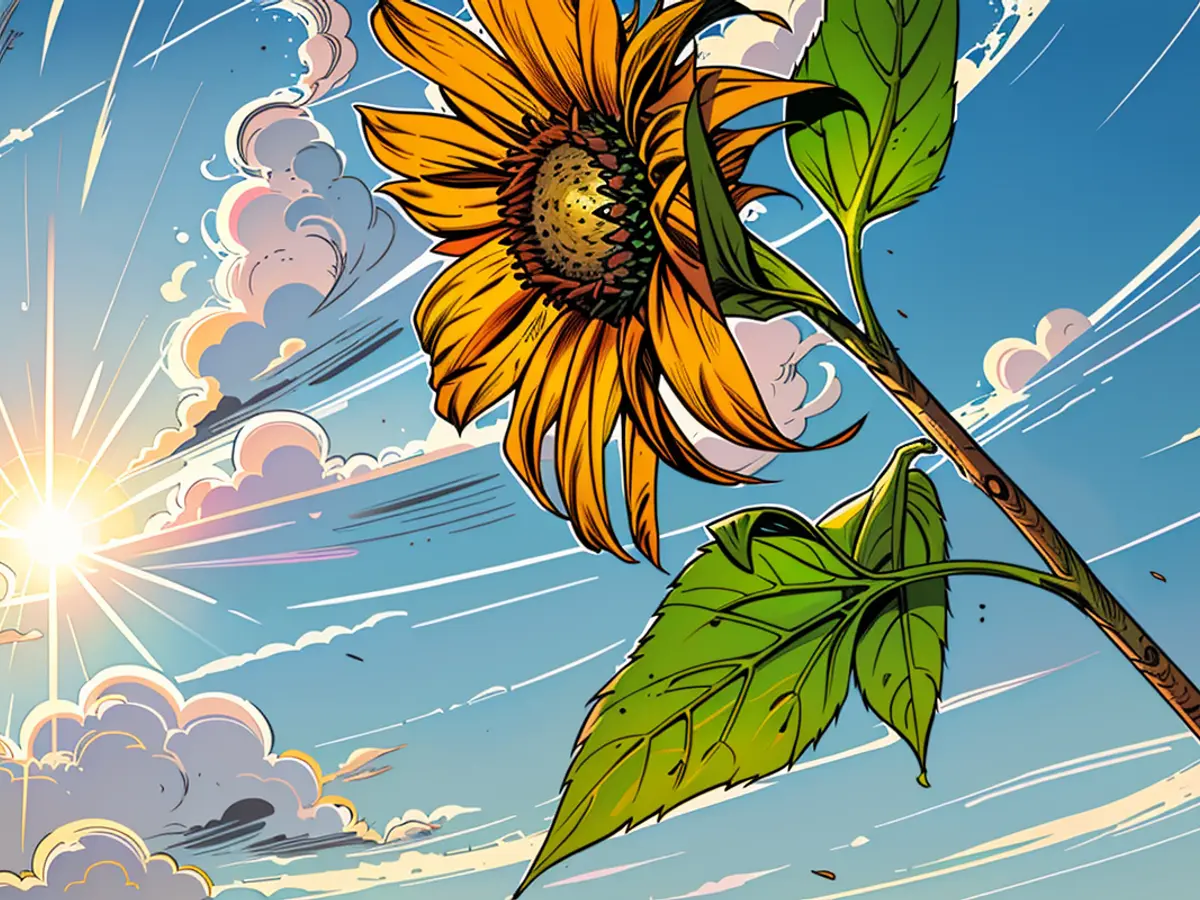- Abundant Amounts of Wheat: Any Additional Information?
Wheat and Corn: The Gamble Bavarian Farmers Have Placed in Crop Farming**. Other plants, unfortunately, are struggling. For instance, the production of sunflowers in the Free State has significantly dwindled this year. They were planted on only around 6,600 hectares - a noticeable drop from 8,200 hectares the year prior. Sunflowers are once again grappling with significant pigeon damage, as reported by Anton Huber, an expert at the Bavarian Farmers' Association (BBV). Regrettably, permits for pigeon control in highly affected areas are no longer granted, leading to substantial yield losses for farmers each year.
Nationwide, the area dedicated to sunflower cultivation also saw a decrease - from nearly 70,000 to 51,100 hectares. The cultivation reached its peak in 2022 with 85,000 hectares due to Russia's invasion of Ukraine. Ukraine is recognized as a vital cultivation area for sunflowers, crucial for oil production.
Oil Extraction through Rape
Rape can also be used for oil extraction. This summer's harvest was disappointing with low yields, according to Huber. The cultivation area decreased slightly, from 112,000 to just under 111,000 hectares.
Farmers rely on rape not only for its yield but also as a staple in crop rotation: Rape is considered an "important, health-promoting crop rotation member that contributes to improving the humus balance," according to the Plant Production Mirror of the State Agency for Agriculture (LfL). Rapeseed oil is a valuable edible oil, while biodiesel is also produced from rape.
The cultivation areas for crops used in vegan food or as protein-rich animal feed also saw a decrease. Pulses such as soybeans, lupins, peas, or field beans (collectively known as grain legumes) were grown on 38,394 hectares. Although this is double the amount from ten years ago, it represents a decrease compared to the previous year: "Regardless of the numerous benefits grain legumes have in crop production, the challenges in cultivation remain significant. Yield losses due to extreme drought make it particularly difficult to grow peas and field beans."
Land Conversion and Abandonment
For example, the cultivation area for soybeans dropped by 11 percent to 21,800 hectares, following a recent increase in soybean cultivation.
This year's cultivation areas are also impacted by the EU's set-aside policy: Each farmer in Germany must set aside four percent of their arable land for fallow. The requirement was suspended last year. In addition, every year, agriculture in Bavaria loses fields that are converted into commercial or residential buildings or roads.
Wheat continues to be the most prominent cereal on Bavarian fields, cultivated on 456,396 hectares. However, the cultivation area decreased compared to the previous year, with wheat covering 498,000 hectares in 2023. Winter barley is mainly used as livestock feed and was planted on approximately 221,000 hectares - an increase compared to the 213,880 hectares of the previous year.
Currently, 399,008 hectares of maize are being cultivated, set to be stored in silos and later used as livestock feed or for biogas plants. Nearly 110,000 hectares are used for grain maize, which is harvested. The maize cultivation area saw a slight decrease by 3.2 percent compared to the previous year, according to data from the Plant Production Mirror.
The Bavarian Farmers' Association (BBV) has reported significant pigeon damage to sunflowers, affecting their production, as mentioned by their expert Anton Huber. Despite Russia's invasion of Ukraine affecting sunflower cultivation nationwide, the Bavarian farmers' association area dedicated to sunflowers decreased from 6,600 to 8,200 hectares the year prior.








